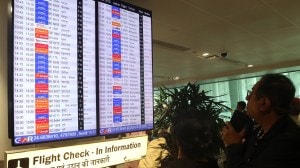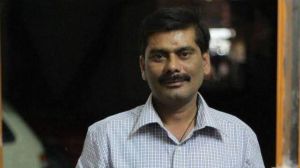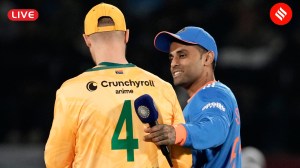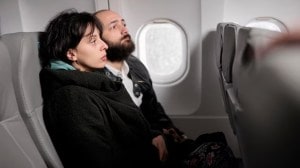Records show a three-fold increase in the number of candidates taking the Foreign Medical Graduates Examination (FMGE) over the last five years – the mandatory test for all Indian students going abroad for an MBBS degree to obtain a licence to practise medicine in India.

According to the National Board of Examination (NBE) that conducts this, the number of medical graduates who took the test increased from 12,116 in 2015 to 35,774 in 2020. This, even as India added nearly 30,000 new medical seats during the same period.
FMGE is conducted twice a year by NBE and graduates with overseas degrees are allowed a total of three attempts to clear it.

The majority of graduates appearing for FMGE have studied in China, Russia, Ukraine, Kyrgyzstan, the Philippines, and Kazakhstan.
In 2020, 12,680 graduates from Chinese universities appeared for the examination. This was followed by 4,313 graduates from Russia, 4,258 from Ukraine, 4,156 from Kyrgyzstan, 3,142 from the Philippines, and 2,311 from Kazakhstan.
Over the last five years, the average pass percentage of the FMGE examination has been 15.82%, and the pass number for graduates from Ukraine 17.22%.
Story continues below this ad
Yet, even among the top countries, some have witnessed a more dramatic rise in Indians studying medicine than others.
For instance, Indian medical graduates with a degree from Philippines have increased almost ten-fold since 2015. A senior doctor who has previously worked with the NBE attributed the popularity to graduates from Philippines performing reasonably better than other countries in the licence exam. In 2020, for example, 33.7% of the candidates from Philippines cleared the FMGE and 50.2% in 2019.
Said former Health Secretary Sujatha Rao: “It’s market forces. Rising population and increasing demand for medical care under the dual burden of disease — communicable and non-communicable. In India, we did not expand very fast by advance planning and policy has been, by and large, reactive to the rising demand.”
Over 16 lakh students appeared for NEET-UG in 2021 for just over 83,000 MBBS seats available across the country, only half in government colleges. As per the suggested doctor patient ratio of 1:1000 suggested by the World Health Organisation, India needs 1.38 million doctors. The National Health Profile 2021 states that there are 1.2 million registered medical practitioners in the country.
Story continues below this ad
The Indian Express reported Monday that many students who do not get a seat in government medical colleges in the country prefer to study in these Asian and east European countries owing to the lower cost of education as compared to private colleges in India.
The cost of medical graduation in the war-torn Ukraine, for example, stands at about Rs 15 to 20 lakh for the entire duration of six years. In India, fees of private medical colleges can range between Rs 50 lakh to Rs 1.5 crore for a 4.5-year course. The fees at government medical colleges in India range from a few thousand to a maximum of a couple of lakhs for the entire course.
Aruna Vanikar, president of the undergraduate medical education board of National Medical Commission, argues that students going to study in countries like Russia, China, and Ukraine is a lose-lose situation, with less than 20% of their graduates passing the FMGE. For instance, only 13% of medical graduates from China passed the exam in 2020 and 16% from Ukrainian medical colleges.
One solution, she says, is to regulate the cost of medical education. She said that there is a need for “capping of fees in all colleges/institutions with the support of Central and state governments, institutions, philanthropists and stakeholders, so as to make medical graduation more humane and worthy to be pursued.”


































